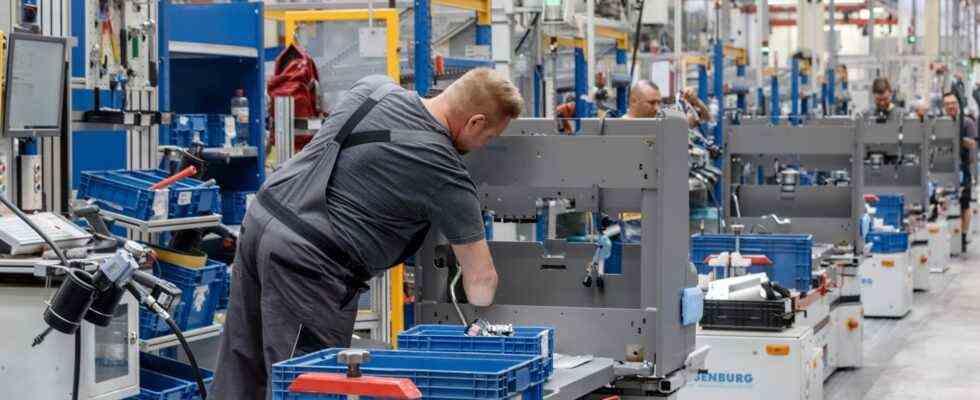As of: 24.11.2021 11:10 a.m.
The fourth wave of corona and delivery bottlenecks are fueling pessimism among companies: The ifo business climate index is falling for the fifth time in a row. According to the DIHK, large parts of the economy are doing pretty badly again.
Companies in Germany are assessing the development of the economic situation more and more negatively. The ifo business climate index, which is based on the monthly survey of around 9,000 executives, fell to 96.5 points in November – after 97.7 points in October. It was the fifth month in a row with a decline, as the ifo Institute announced.
“Delivery bottlenecks and the fourth corona wave are causing problems for companies,” said Ifo President Clemens Fuest. Expectations for further development in particular are therefore increasingly characterized by skepticism. But the assessment of the current situation is also deteriorating. This can be seen in almost all areas of the economy – with the exception of the construction industry.
“Similar scenario as last year”
The German Chamber of Commerce and Industry (DIHK) has already sounded the alarm with a view to the consequences of the sharp rise in the number of corona infections. “Highs on the stock markets shouldn’t hide the fact that large parts of the German economy are doing pretty badly again,” DIHK President Peter Adrian told the news agency dpa.
Many self-employed, small businesses and medium-sized companies are currently experiencing a breakdown rather than a departure for their own business. “With the cancellation of Christmas markets, the cancellation of Christmas parties and overnight stays, entire industries are experiencing a scenario similar to last year,” says Adrian. “It hits especially those who normally generate 30, 40 percent or more of their sales in those weeks.”
Adrian said it was right to extend the Corona aid again in view of the dramatic situation – the federal government wants to extend the bridging aid III Plus, which was previously limited to the end of the year, until the end of March 2022. “But everyone in business knows that this is not a sustainable economic model in the long term.”
Government extends short-time working scheme until March
For the current final quarter of the year, many experts expect only very low growth or stagnation in economic output in Germany. Some even forecast a decline in gross domestic product towards the end of the year.
Against this background, the executive federal government extended the simplified rules for the use of short-time working for a further three months until the end of 2022 in the morning. The cabinet approved a corresponding ordinance from Federal Labor Minister Hubertus Heil. This means that there are still lower hurdles than before the Corona crisis when short-time work is to be registered. Companies are also financially relieved by the fact that the Federal Employment Agency reimburses them for half of the social contributions for short-time workers. “In this way, we are giving clear perspectives in these economically uncertain times and helping to ensure that the job market gets through the winter well,” said Heil.
Ifo business climate index falls again
Ralf Schmidberger, BR, 11/24/2021 10:55 a.m.

